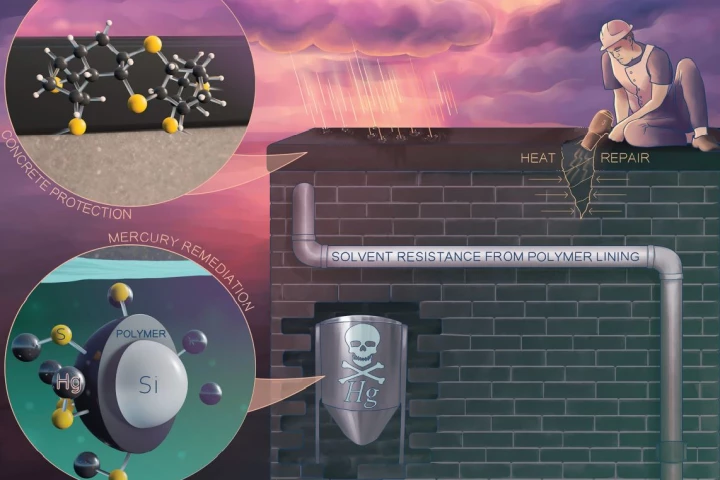University of Liverpool
-
Archaeologists have discovered the oldest evidence of artificial structures made of wood, dating back almost half a million years – predating the appearance of our own species and suggesting our relatives settled down much earlier than we thought.
-
Most people with breast cancer die not from the primary tumor but from metastasis, when the cancer spreads. Researchers have developed a compound that blocks the actions of a metastasis-causing protein, potentially reducing the spread of breast cancer.
-
Industrial piping has a hard life, as it's constantly exposed to liquids that can damage its inner surface over time. A new polymer coating could help protect such pipes, while removing toxic metals from the liquids as it does so.
-
Engineers at the University of Liverpool have developed a robot scientist that can autonomously perform experiments, analyze results and decide what to do next based on those results – and it’s already making new discoveries on its own
-
Imagine getting a flat tire, and just smearing on a chemical that makes the rubber meld seamlessly back together. That’s the kind of breakthrough researchers are now reporting, with a new material made of waste products and easily recyclable itself.
-
The Earth’s magnetic field is currently weakening, and there’s been a lot of talk in recent years that a reversal might be imminent. Now a new study has looked at the history of these events and found that a reversal probably isn’t about to happen.
-
To survive through winter in the freezing, oxygen-starved waters of northern Europe, crucian carp and goldfish produce their own alcohol internally, removing dangerous chemicals from their bodies and getting nicely sauced along the way. Now, researchers have worked out how they do it.
-
It turns out that the way in which mice are handled prior to the start of a research study can dramatically influence the results. A new paper shows an advantage to a particular method of getting the rodents into a testing arena that could remove a stumbling block to well-controlled experiments.
-
Scientists have analyzed the teeth of Neanderthals found in two European caves, and learned that not only did they chow down on a wide variety of food, but may have even been the first to discover the pain-killing effects of certain plants and molds.
-
Having studied the brushstrokes in thousands of paintings from famous artists, researchers say that certain variations in the works over the artists' careers can point to an ongoing decline in cognitive function.
-
Researchers have looked to gain concrete information as to how helpful a smartphone app can be for patients tackling anxiety and/or depression. The results of the study were positive, but they aren’t necessarily indicative of mental health apps as a whole.
-
Scientists from the University of Liverpool have developed a polymer that soaks up the carbon dioxide from smokestack emissions, for use in other applications. It could also be used to facilitate the switch-over to hydrogen power.
Load More











